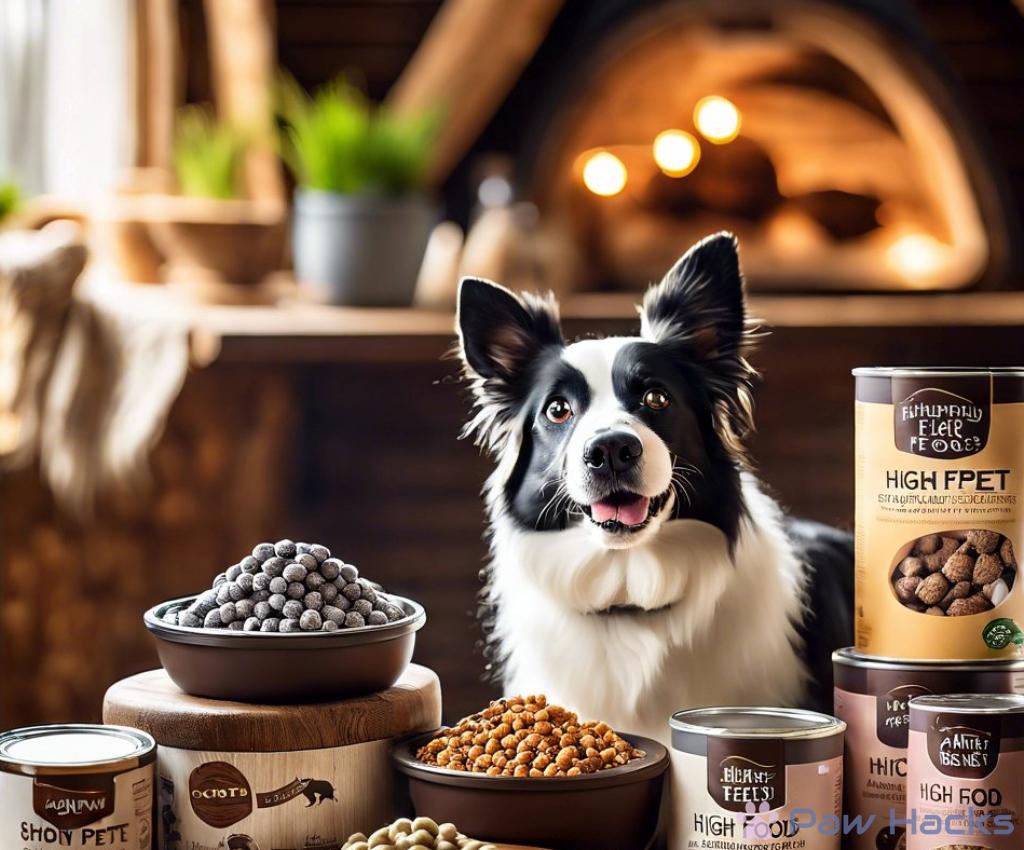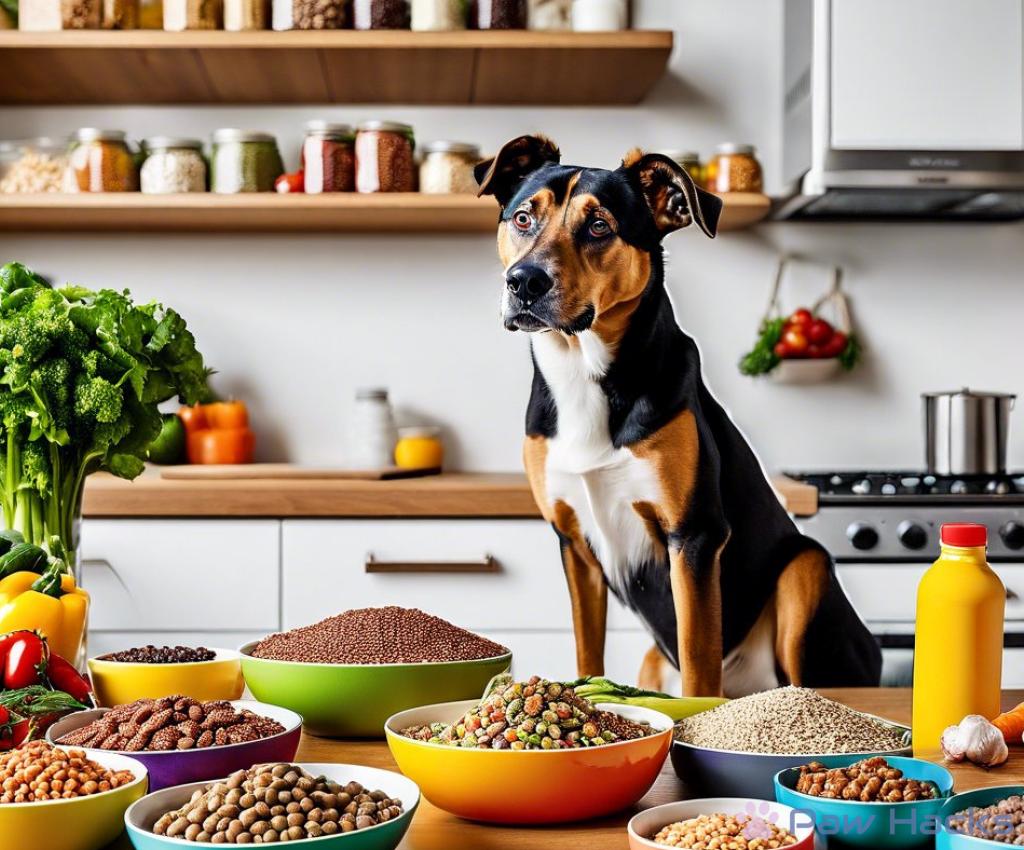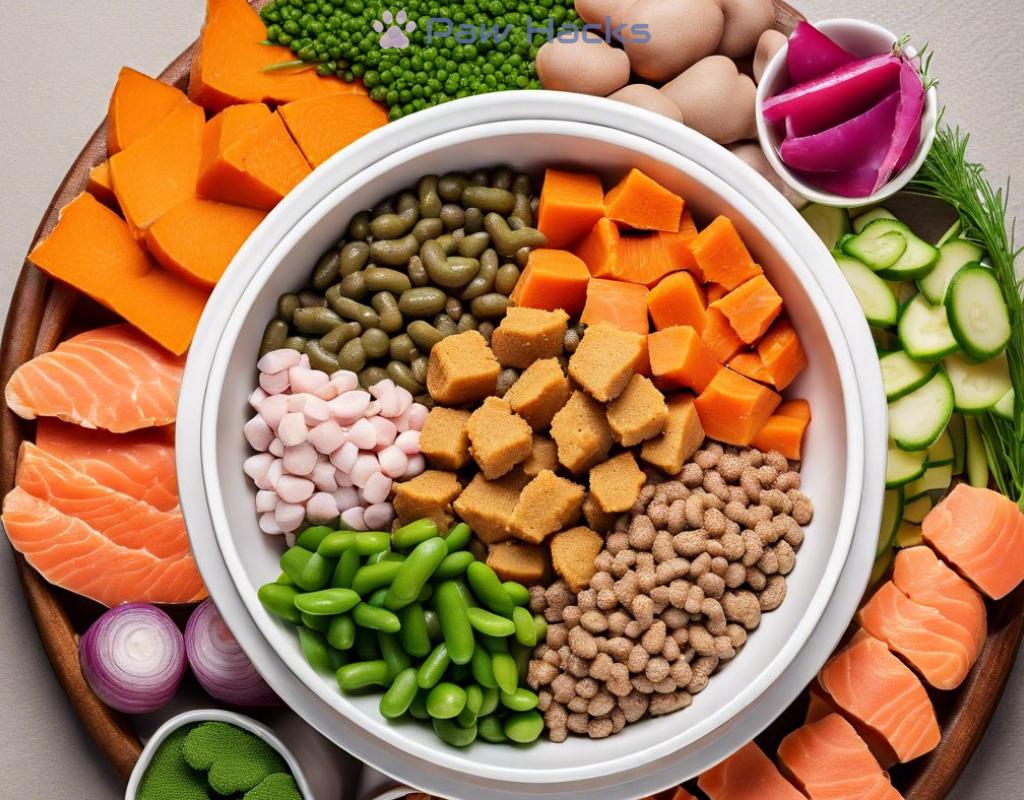High-Calorie Foods for Underweight Pets
Nourishing Delights: Top High-Calorie Foods to Boost Your Pet’s Weight

For pet owners of underweight pets, it can be a challenging journey to find the right foods that not only help with weight gain but also ensure overall health. High-calorie foods are essential in providing the extra energy and nutrients that underweight pets need. This article explores some of the best high-calorie options available to help your furry friend put on some healthy weight.
When it comes to selecting high-calorie foods, variety is key. Here’s a curated list of some of the best options that cater to both dogs and cats:
- Premium Dry Kibble: Look for brands that offer high protein and fat content.
- Canned Wet Food: Rich in moisture and calories, ideal for picky eaters.
- Nut Butter: A tasty treat that can be added to meals for an extra calorie boost.
- Cooked Eggs: Packed with protein and healthy fats.
- Commercial Weight Gain Formulas: Specifically designed to help pets gain weight safely.
Each of these options can be incorporated into your pet’s diet to help them reach a healthy weight.
To make an informed choice, it’s important to compare the nutritional values of different high-calorie foods. Below is a table that summarizes the calorie content and key nutrients of some popular options:
| Food Type | Calories per Cup | Protein (%) | Fat (%) |
|---|---|---|---|
| Premium Dry Kibble | 400 | 30 | 15 |
| Canned Wet Food | 250 | 10 | 20 |
| Commercial Weight Gain Formula | 500 | 25 | 25 |
By examining this table, you can see that different types of food offer varying levels of calories, protein, and fat. Choose the one that aligns best with your pet’s dietary needs.
Understanding Dietary Needs: How to Choose the Right High-Calorie Options for Your Underweight Pet

Navigating Nutritional Requirements
When it comes to selecting high-calorie foods for underweight pets, understanding their unique dietary needs is crucial. Each pet has different requirements based on factors such as age, breed, activity level, and existing health conditions. This makes it essential to assess your pet’s specific situation before introducing new foods to their diet. Consulting with a veterinarian can provide tailored advice on the best high-calorie options that align with your pet’s health profile.
Evaluating Food Quality and Ingredients
Not all high-calorie foods are created equal. It’s important to look beyond just calorie content and focus on the quality of the ingredients. Whole food sources, such as real meats, vegetables, and healthy fats, should be prioritized. Reading the ingredient list can reveal whether the food contains fillers or artificial additives that may not contribute to your pet’s well-being. Additionally, consider how the food is processed—options that retain the maximum nutritional value are generally more beneficial for weight gain.
Monitoring Progress and Adjusting Diet
Once you introduce high-calorie foods into your pet’s diet, it’s vital to monitor their progress closely. Track changes in their weight and overall health, adjusting the food intake as necessary. Regular weigh-ins can help you determine if your pet is gaining weight at a healthy rate. If weight gain is insufficient, consider increasing the portion sizes or adding more calorie-dense treats. Staying attentive to your pet’s response to the new diet will help ensure they are not only gaining weight but doing so in a healthy manner.
| Food Type | Calories per Cup | Protein (%) | Fat (%) |
|---|---|---|---|
| Premium Dry Kibble | 400 | 30 | 15 |
| Canned Wet Food | 250 | 10 | 20 |
| Commercial Weight Gain Formula | 500 | 25 | 25 |
By keeping these considerations in mind, pet owners can make informed decisions and foster healthier lifestyles for their underweight companions.
Homemade High-Calorie Treats: Simple Recipes to Help Your Pet Gain Healthy Weight
For pet owners seeking to enhance their underweight furry friends’ diets, homemade high-calorie treats provide a fantastic solution. These treats not only allow you to control the ingredients but also ensure your pet enjoys every bite. By crafting delicious and nutritious snacks at home, you can add variety to their meals while promoting healthy weight gain. Below are some easy-to-follow recipes that combine wholesome ingredients, giving your pets the boost they need.
Nourishing Peanut Butter and Banana Bites
One of the simplest and most appealing treats for pets is the Peanut Butter and Banana Bites. This recipe combines the rich flavor of peanut butter, which is high in calories and healthy fats, with the natural sweetness of bananas. To prepare these treats, mash one ripe banana and mix it with a half cup of natural peanut butter. You can then add a cup of oats to the mixture to create a dough-like consistency. After rolling the mixture into small balls, place them on a baking sheet lined with parchment paper and refrigerate until firm. These tasty bites are a delightful way to pack extra calories into your pet’s diet.
Wholesome Chicken and Sweet Potato Chews
Chicken and Sweet Potato Chews are another excellent option for high-calorie treats. Chicken is a great source of protein, while sweet potatoes provide complex carbohydrates and vitamins. Start by cooking a sweet potato until tender, then mash it with a cup of shredded, cooked chicken. Mixing in a tablespoon of coconut oil not only enhances the flavor but also adds healthy fats. Form the mixture into small patties and bake them at a low temperature until they dry out to a chewy texture. These chews can be stored in the refrigerator and serve as a satisfying snack that your pet will love.
Creating these homemade high-calorie treats can be a rewarding experience, allowing you to bond with your pet while catering to their nutritional needs. Keep in mind to always introduce new foods gradually and observe your pet’s reaction, ensuring they thrive on their journey to a healthier weight.
The Power of Protein: Why High-Protein Foods Are Essential for Underweight Pets
As pet owners, we often worry about our furry friends’ health, especially when they are underweight. One crucial aspect of their diet that deserves special attention is protein. High-protein foods play a vital role in promoting healthy weight gain and overall well-being. Understanding the significance of protein in your pet’s diet can empower you to make informed decisions that pave the way for their health journey.
Building Blocks of Muscle and Energy
Protein serves as the building block of muscle mass, which is essential for maintaining strength and vitality in pets. Underweight pets often lack the necessary muscle tone, making them appear frail. Incorporating high-protein foods can help restore their body condition by supporting muscle development. Additionally, protein-rich foods provide energy, which is particularly important for active pets. When choosing protein sources, it’s essential to focus on quality. Animal-based proteins, such as chicken, beef, lamb, and fish, are generally more beneficial than plant-based alternatives, as they contain all essential amino acids.
Balancing Nutritional Needs with High-Protein Foods
When selecting high-protein options for your underweight pet, it’s crucial to find a balance with other nutrients. While protein is essential, a well-rounded diet should also include fats, carbohydrates, vitamins, and minerals. Excess protein intake without adequate fat and carbohydrates may lead to digestive issues or insufficient caloric intake. Therefore, it’s vital to create a balanced meal plan that incorporates high-protein foods alongside other nutrient-rich ingredients. Below is a list of excellent high-protein foods that can contribute to your pet’s weight gain:
- Chicken Breast: Lean and easily digestible, perfect for muscle building.
- Turkey: A great source of protein with lower fat content.
- Fish: Rich in omega-3 fatty acids, beneficial for skin and coat health.
- Eggs: Packed with protein and healthy fats; versatile and easy to prepare.
- Commercial High-Protein Pet Foods: Formulated specifically for weight gain and muscle support.
Tracking Progress and Adjusting Protein Intake
Introducing high-protein foods into your pet’s diet is just the beginning. It’s essential to monitor how your pet responds to the changes. Keep an eye on their weight, energy levels, and overall health. Regular weigh-ins and consultations with your veterinarian can help you adjust their protein intake as needed. If you notice your pet gaining weight too quickly, consider moderating the protein content or balancing it with other nutrients. A gradual approach will ensure your pet gains weight in a healthy manner without compromising their well-being.
Consulting the Experts: When to Seek Professional Guidance for Your Underweight Pet’s Diet
When it comes to nourishing your underweight pet, making informed dietary choices is essential. However, even the most dedicated pet owners can find themselves in need of expert advice. Consulting a veterinarian or a pet nutritionist can provide invaluable insights tailored to your pet’s specific needs. Understanding when to seek this professional guidance can make all the difference in your pet’s health journey.
Recognizing the Signs of Nutritional Deficiency
It’s crucial to recognize the signs that may indicate your pet is not receiving adequate nutrition. Persistent weight loss, lethargy, or changes in behavior can be red flags. If you notice these symptoms, it may be time to consult a professional. Veterinarians can assess whether your pet’s weight issues stem from dietary deficiencies or underlying health problems. Their expertise allows for a comprehensive evaluation of your pet’s condition, ensuring that any dietary changes you consider are safe and effective.
The Complexity of Dietary Needs
Every pet is unique, and their nutritional requirements can vary greatly based on factors like age, breed, and health status. As a pet owner, you may feel overwhelmed by the multitude of high-calorie options available. This is where expert guidance becomes indispensable. Veterinarians and pet nutritionists can provide tailored recommendations that consider your pet’s specific lifestyle and health conditions. They can help create a balanced meal plan that incorporates high-calorie foods while ensuring that your pet gets the necessary vitamins and minerals.
In some cases, your pet may have special dietary restrictions or health conditions that necessitate a specialized diet. For instance, pets with allergies might require hypoallergenic options, while those with certain medical conditions may need low-fat or low-carbohydrate foods. An expert can help you navigate these complexities, ensuring your pet receives the nutrients they need without compromising their health.
Monitoring Progress and Making Adjustments
Once you begin implementing high-calorie foods into your pet’s diet, ongoing monitoring is vital. A veterinarian can help you track your pet’s weight gain and overall health, making necessary adjustments to their diet as needed. Regular check-ups can provide a platform for discussing any concerns or changes you observe in your pet’s behavior or physical condition. By collaborating with a professional, you can ensure that your pet’s journey to a healthier weight is both safe and effective.
In summary, while the journey to help your underweight pet gain healthy weight can be both rewarding and challenging, consulting with experts is a smart strategy. They can guide you through recognizing nutritional deficiencies, understanding dietary complexities, and monitoring progress effectively.
Share this content:



